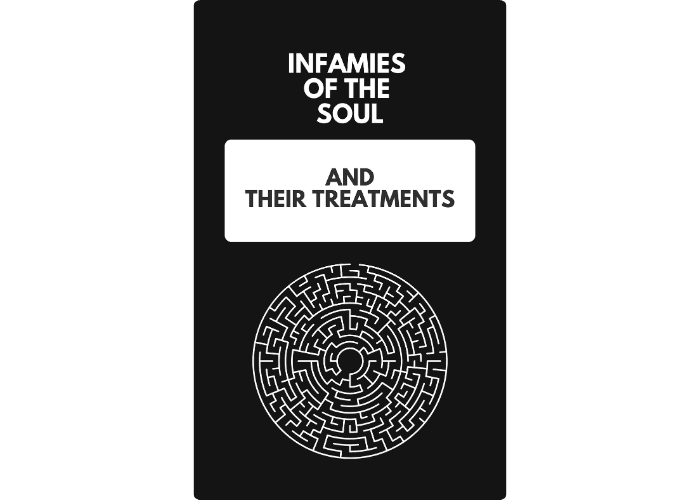About the Author
Imam Abu ‘Abd al-Rahman al-Sulami (937–1021 CE) was a profound scholar of Islamic spirituality, Shafi’i jurisprudence, and Hadith. His works reflect deep introspection and a mastery of Qur’anic and prophetic sciences, making him a beacon for seekers of inner purity.
Key Insights
Insight 1: The illusion of Seeking Salvation While Persisting in Sin
Insight 2: The Danger of Ostentation
Insight 3: Preoccupation with Others’ Faults
Insight 4: Laziness as a Spiritual Disease
Insight 5: Heedlessness and False Security
Insight 6: Pursuing Caprice and Desires
Insight 7: The Illusion of Superiority
Insight 1: The Illusion of Seeking Salvation While Persisting in Sin
There’s a dangerous contradiction the soul often falls into—it seeks salvation while stubbornly holding onto the very actions that keep it distant from God. Imam al-Sulami captures this vividly, describing the soul as “standing at the door of salvation, knocking with various litanies and good deeds while the door is open, yet it shuts the door of returning [to the truth] on itself through numerous violations.”
Let that sink in. The door to salvation isn’t locked. It’s already open. But the soul—your soul—refuses to step through because it’s too attached to the comforts of sin and heedlessness. You perform the outward rituals, convincing yourself that invocations or praying extra units of prayer will somehow cancel out persistent disobedience. But deep down, you know something is off. The weight of unresolved sins lingers.
“The door is open, O underminer! But you flee from it! How can you reach a goal when you mistook its path from the first step?”
Rabi’a al-Adawiyya’s words, as quoted by Imam al-Sulami, strip away the illusion. The real obstacle isn’t external—it’s internal. The soul flees from the open door of salvation because walking through it requires sacrifice. It means giving up certain habits, swallowing pride, and confronting hard truths about yourself.
Why This Happens
The ego craves comfort. The lower self convinces you that as long as you intend to become better, the work can wait. Maybe you tell yourself that The Most Merciful is forgiving, that He understands your struggles, and that eventually, you’ll repent. But this mindset is exactly what Imam al-Sulami warns against.
You hope for forgiveness without actively repenting. You plan to change but persist in small violations, thinking they don’t matter. But the small infractions accumulate. Over time, they build a wall between you and God, even as you stand knocking on salvation’s door.
A sage in the book offers a blunt reminder:
“Do not expect to sober up while you have an infamy. And do not expect salvation while you have a sin, against you.”
Your soul can’t heal if you refuse to acknowledge the wound. You can’t move closer to God while continuing to engage in the very actions that drive you further from Him.
Why It’s Dangerous
This illusion of seeking salvation while persisting in sin leads to a hardening of the heart. At first, the guilt weighs on you. But eventually, the mind normalizes the disobedience. You justify it, rationalize it, or worse—stop noticing it altogether. This is where the real danger lies. The Qur’an warns:
“Then, after that, your hearts became hardened like stone, or even harder”.
When the heart hardens, acts of worship feel heavy. The Qur’an gathers dust. Prayers become mechanical. You might still go through the motions, but the soul feels distant.
Breaking the Cycle
Imam al-Sulami doesn’t leave you stranded. The path back is clear, but it requires deliberate action.
- Start with Brutal Honesty
Sit with yourself. Ask hard questions: Where am I falling short? What sins do I excuse under the guise of “struggle”? Write them down. The ego resists this kind of introspection because it forces accountability. But accountability is the first step toward sincerity. - Repent Immediately
Delaying repentance is the soul’s way of staying comfortable. Imam al-Sulami emphasizes that “returning to the truth requires urgency.” Repent as soon as you recognize a violation, even if it feels small. The Prophet ﷺ said, “The one who repents from sin is like the one who never sinned”. - Replace Violations with Acts of Obedience
It’s not enough to stop sinning. Fill the void with good deeds. If you miss a prayer, pray two extra units of prayer of repentance. If you harm someone with words, supplicate for them. The goal is to overwhelm the soul with righteousness until disobedience feels foreign. - Surround Yourself with the Righteous
Imam al-Sulami advises walking the path of guidance, which means keeping righteous company. When you’re around people striving for God’s pleasure, your own shortcomings become clearer—and harder to ignore. The Prophet, peace be upon him, said, “A person is upon the religion of their close friend”. Choose your circle wisely. - Make Dua for Sincerity
Ask your Lord to remove the barriers in your heart. The Prophet, peace be upon him, taught to frequently pray, “O God, purify my heart from hypocrisy and my deeds from ostentation”.
Sowsee note: The Quran says: “Indeed, God will not change the condition of a people until they change what is in themselves” God’s mercy is vast, but it flows toward those who take steps to change. Don’t let the illusion of good intentions replace the reality of action.
The door to salvation is already open. The only thing standing between you and it is the weight of unrepented sins and unresolved ego. Imam al-Sulami’s insight is clear— the door is open, step through. The path is clear, but the first step requires leaving behind the burdens that have held you back for too long.

